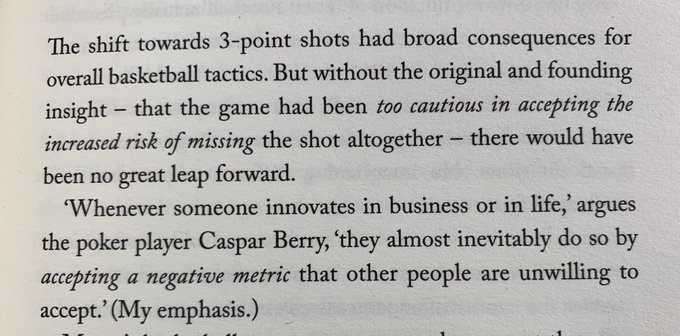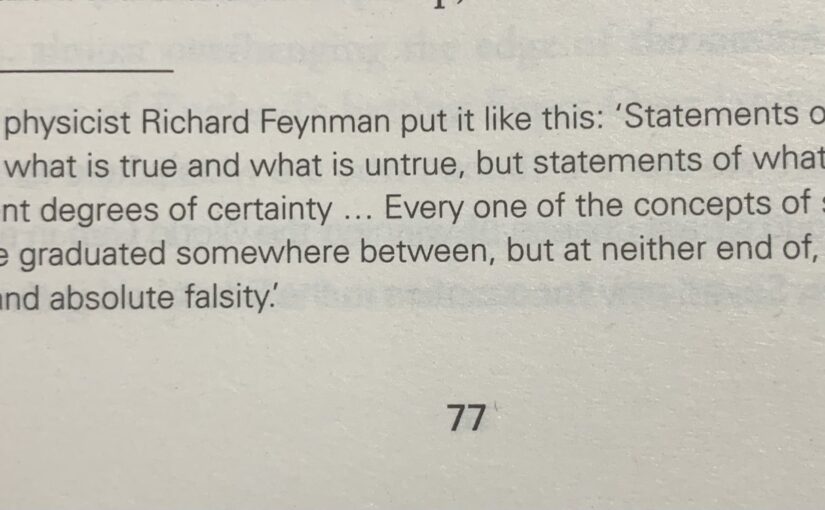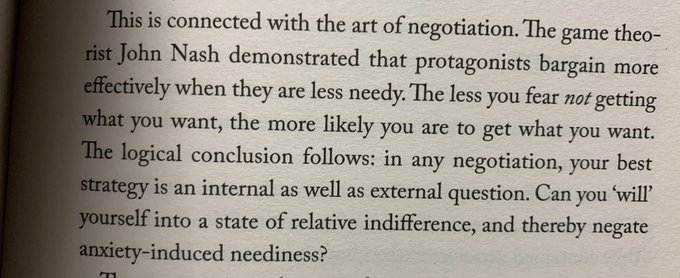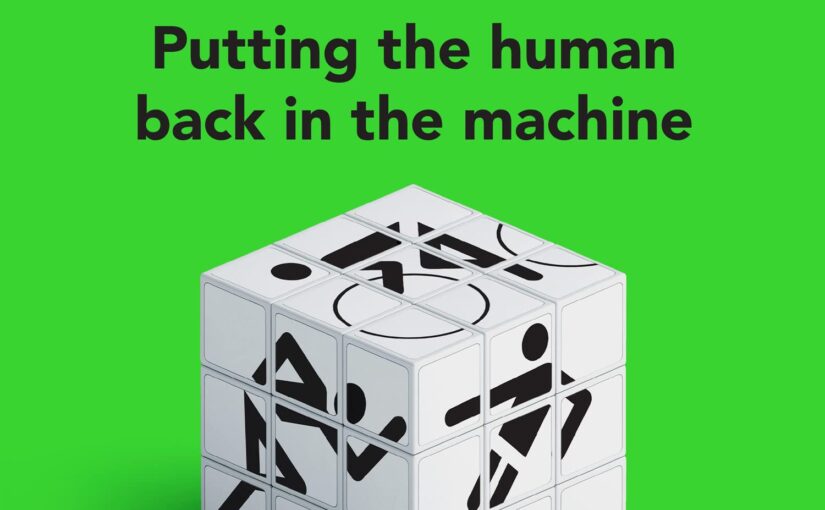The shift towards 3-point shots had broad consequences for overall basketball tactics. But without the original and founding insight – that the game had been too cautious in accepting the increased risk of missing the shot altogether – there would have been no great leap forward. Whenever someone innovates in business or in life,’ argues the poker player Caspar Berry, ‘they almost inevitably do so by accepting a negative metric that other people are unwilling to accept.’ (My emphasis.)
Excerpt from: Making Decisions: Putting the human back in the machine by Ed Smith



